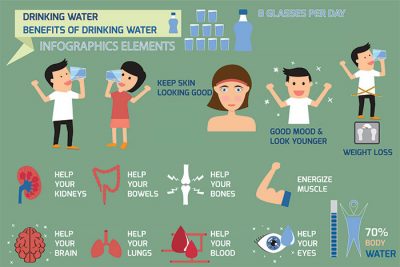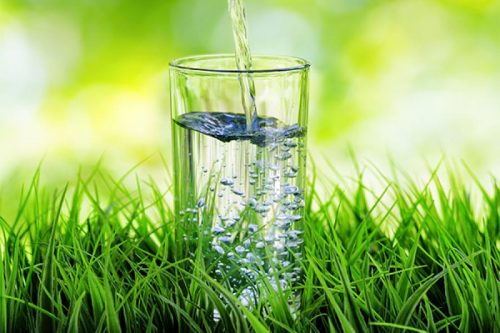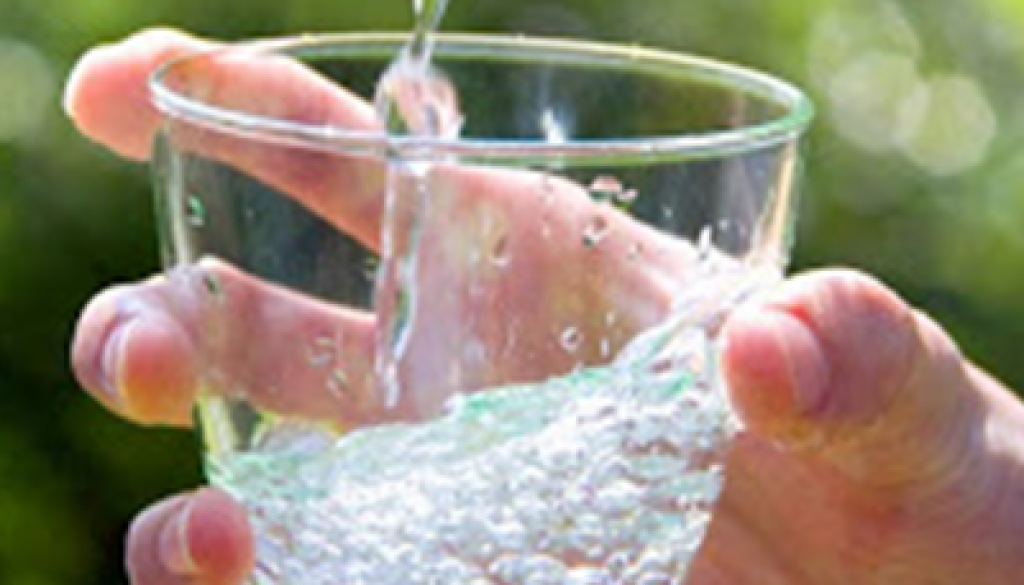Water and Brain Function Optimization
Over 70 % of your body is composed of water, and every function in the body is dependent on water, including the activities of the brain and nervous system.
Water and Brain Function – “How to Improve Memory and Focus” – by Merlin Hearn and Nancy Hearn

The average person in the U.S. drinks less than a quart (32 ounces) of water a day.
Yet, according to the Mayo Clinic, the average adult loses more than 80 ounces of water every day through sweating, breathing, and eliminating wastes.
If you are drinking less than 80 ounces of water a day, what is the impact on your brain function? Drinking water and brain function are integrally linked.
Lack of water to the brain can cause numerous symptoms including problems with focus, memory, brain fatigue and brain fog, as well as headaches, sleep issues, anger, depression, and many more.
Water and Brain Energy
 The brain is one of the most important organs in your body to keep fueled. It is approximately 85 percent water and brain function depends on having abundant access to water.
The brain is one of the most important organs in your body to keep fueled. It is approximately 85 percent water and brain function depends on having abundant access to water.
Drinking water and brain function are integrally linked.
Water gives the brain the electrical energy for all brain functions, including thought and memory processes.
According to Dr. Corinne Allen, founder of the Advanced Learning and Development Institute, brain cells need two times more energy than other cells in the body. Water provides this energy more effectively than any other substance.
Water is also needed for the brain’s production of hormones and neurotransmitters. Nerve transmission requires one-half of all the brain’s energy.When your brain is functioning on a full reserve of water, you will be able to think faster, be more focused, and experience greater clarity and creativity.
Daily hydration will not only help with better thinking, it can help prevent attention deficit disorder in children and adults.
The reason why it is important to drink plenty of water throughout the day for optimal brain function is because your brain does not have any way to store water.
When your body loses more water than you are replacing, dehydration will kick in and brain function will be affected.
Brain Symptoms of Dehydration
Dehydration causes your brain to shut down and not run at full speed. Some of the mental symptoms of dehydration include brain fog, afternoon fatigue, focus issues, depression, anger, emotional instability, exhaustion, headaches, sleep issues, stress, and a lack of mental clarity and acuity.Studies have shown that if you are only 1 percent dehydrated, you will likely have a 5 percent decrease in cognitive function.
If your brain drops 2 percent in body water, you may suffer from fuzzy short-term memory, experience problems with focusing, and have trouble with math computations.
Further studies have shown that prolonged dehydration causes brain cells to shrink in size and mass. This is most common in the elderly, many of whom tend to be chronically dehydrated for years.
Dehydration is also a known factor in dementia and proper hydration may help reduce the risk of Alzheimer’s, Parkinson’s, and Lou Gehrig’s disease.
Water is also essential for delivering nutrients to the brain and for removing toxins. When the brain is fully hydrated, the exchange of nutrients and toxins will be more efficient—thus ensuring better concentration and mental alertness.
Water and Brain Challenges
Dr. Allen has found that people with brain challenges such as Autism, Aspergers, ADD, head injuries, anxiety attacks and depression often drink almost no water each day! The lack of water only enhances brain dysfunction.
Brain inflammation is often associated with various types of brain challenges, especially injuries, and will often result in the body’s inability to detoxify harmful substances from the brain.
When the body is dehydrated, the detoxification problem linked to inflammation is exacerbated.
Free radicals such as radiation, pollutants, chemicals, pesticides, and toxic metals pass freely through the brain’s blood supply. To stop the many sources of free radicals attacking the brain and causing brain inflammation, a strong antioxidant and powerful anti-inflammatory agent is needed.
Water provides essential energy to the brain, keeps the nerve signals going, delivers nutrients to the brain, and removes toxins. We need to be drinking enough water daily to keep the brain fueled and energized for optimum function.
Recommendations for Improved Brain Function
 To start your day off right for optimal brain function, I recommend drinking 12 to 16 ounces of water as soon as you wake up.
To start your day off right for optimal brain function, I recommend drinking 12 to 16 ounces of water as soon as you wake up.
Always keep a bottle of filtered water near you throughout the day, especially if you have a job that requires a lot of mental activity.
Drinking water regularly will help to keep your brain fueled, oxygenated, and energized.
Many people think, like I use to, that they can drink soda, coffee, milk, or juice instead of water and get the same level of hydration. This is simply not true.
Bottom line, if you want your brain to function well, receiving and sending signals to the rest of your body, make sure it receives the water it needs.
In addition, the type of water you drink is extremely important. I recommend filtered drinking water over tap, bottled, distilled, or reverse osmosis water.
Reference
Brainadvance.org: Water and the Brain
Further reading . . .
Depression and Dehydration – Key Reasons They Are Linked
Return from Water and Brain to Health Benefits of Drinking Water
I hope you enjoy this article and choose to stay on the path to wellness by staying hydrated.
REMEMBER: The recipe for well-being is simple:
BREATH DEEPLY, DRINK WATER, SLEEP WELL, STAY GRATEFUL and PRACTICE YOGA
My Love and Gratitude to YOU !
Veronica Vidal





